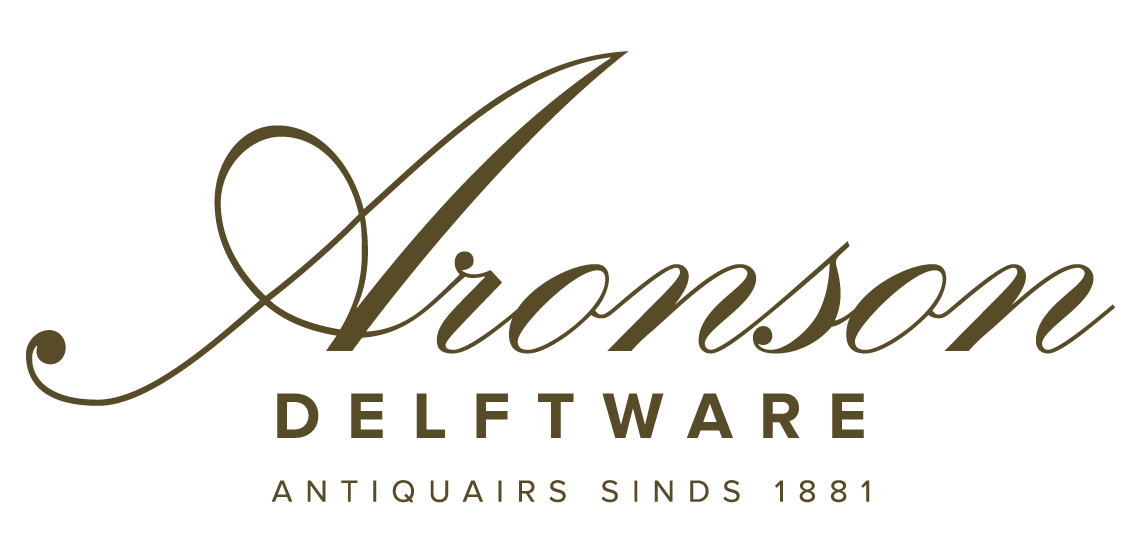Robert Aronson during a panel discussion at The Winter Show
Next event TEFAF Maastricht 2026
TEFAF Maastricht
Save the dates:
Private Preview dates: March 12 & 13, 2026 | Run of the show: March 14 – 19, 2026
RECENT PUBLICATIONS
The South Sea Bubble of 1720: ‘Actie’ Delftware from the Meentwijck Collection
Main image by Michiel Elsevier Stokmans: ‘Actie’ Delftware, from Aronson Antiquairs, to be presented at TEFAF 2026. With TEFAF 2026 in sight, we are greatly looking forward to presenting our…
The fan-shaped flower holder: form, function and international origins
Main image by Marie Louise Photography. Blue and White Flower Vase, marked CK for Cornelis Koppens, owner of De Metaale Pot (The Metal Pot) factory from 1724 to 1757, Delft,…
Sinterklaas and the Shoe: Delft Miniatures in a Dutch Tradition of Giving
Main image: Jacob Houbraken, Het Sint Nicolaasfeest, Engraving, 1761, Collection Rijksmuseum, Amsterdam (inv. no. RP-P-1938-1443) The footwear worn by the figures in the engraving correspond perfectly with the Delft miniature…
The Graceful and the Playful: Lange Lijs and Zotje on Delft faience
Main image: Polychrome plaque, Delft, circa 1740-1760, former Aronson Collection (inv. no. D0731) Since Chinese porcelain entered the Dutch market around 1600, it captured people’s imagination and laid the foundation…
TEFAF MAASTRICHT
Discover the story behind our monumental 17th-century Delft Flower Pyramid, once in the collection of Cecil Beaton and now acquired by the Cleveland Museum of Art — as featured by TEFAF.
“New collectors have a unique opportunity in the decorative arts to survey an accessible field, find an entry point they’re comfortable with, immerse themselves in research and exploration, and embark on a very enjoyable collecting journey.” — Robert Aronson in an interview for TEFAF Online
OBJECT OF THE MONTH
PASSION FOR DELFTWARE
17th & 18th Century Delftware, Unique by Definition
HISTORY
Delftware has been a national symbol of Holland for almost 400 years. Initiated by the demand for the waning importation of Asian porcelain from the 1640s, Delftware quickly became an iconic national product and one of the greatest Dutch achievements.
PRODUCTION
From the 1680s the Delftware industry has constantly innovated with new shapes, decorations and functions. Their products were coveted by European nobility and royalty for their quality and diversity. The city of Delft rapidly became an inspiration to many European and even Asian potters.
COMPANY
Since 1881, over five generations of the Aronson family have brought to market the highest quality Delftware. We confidently ensure that private collectors and museum and corporate curators will discover fully researched authentic Delftware at Aronson Antiquairs in Amsterdam.
MUSEUM COLLECTIONS
As Dutch Delftware played a pivotal role in the development of European ceramics in the seventeenth and eighteenth centuries, it is represented in many museums worldwide. The robust faience center of Delft was the result of two important currents of the time: the Italian production of majolica and the Chinese and Japanese wares that were imported by the Dutch East India Company (VOC). Through the influence of Queen Mary, the taste for painted Delftware spread rapidly through a wealthy European elite. Read more about the Delftware collections in museums in this section.
VIDEO EXPLANATIONS
With the images, 3D renderings and descriptions of many of our Delftware objects on our collection page you will find explanatory videos. In these short videos Robert Aronson and Céline Ariaans tell more about shapes, decorations, uses, etc. If you find that a subject is under-represented, please let us know.
ABOUT ROBERT ARONSON

Robert Aronson is the fifth-generation director of Aronson Antiquairs and a leading authority on 17th- and 18th-century Dutch Delftware. After beginning his career at Sotheby’s in London, he transformed the family firm into a globally respected gallery, advising museums such as the NGV in Melbourne, The Met in New York, and the Cleveland Museum of Art.
He currently serves, amongst others, as a specialist in European ceramics on the Dutch Antiques Roadshow (Tussen Kunst & Kitsch), as a board member of the Royal Delft Museum, and as an expert within the European Commission’s Cultural Heritage working group. He is also a certified account manager for applied arts with the Dutch Police Academy’s national expertise network (LDM). Formerly Chairman and member of TEFAF’s Executive Committee, three-term chairman of the Royal Dutch Fine Art Dealers Association (KVHOK), and member of a national commission advising the Dutch government on art and antiques, Robert continues to shape the field through scholarship, connoisseurship, and international collaboration.














